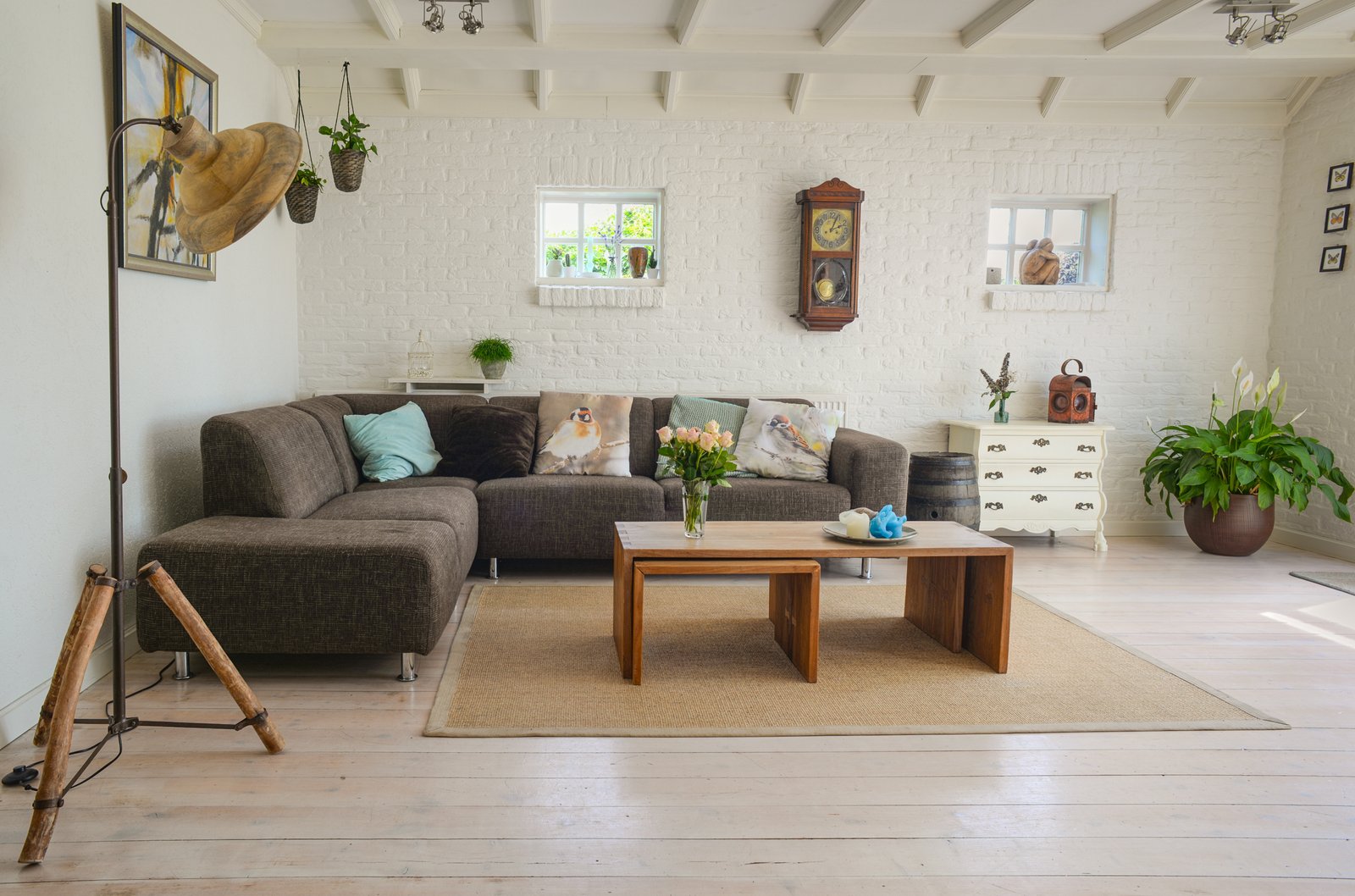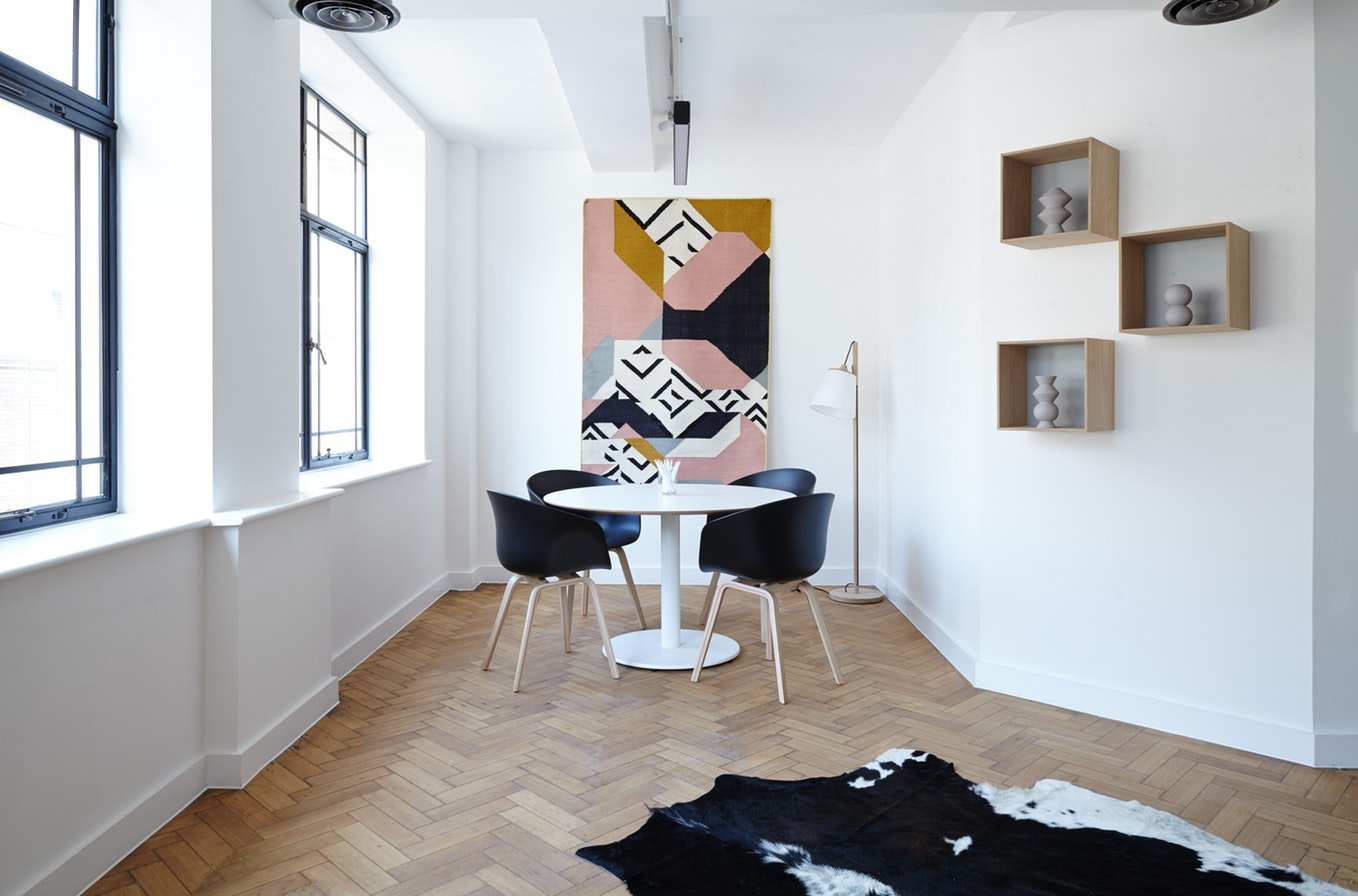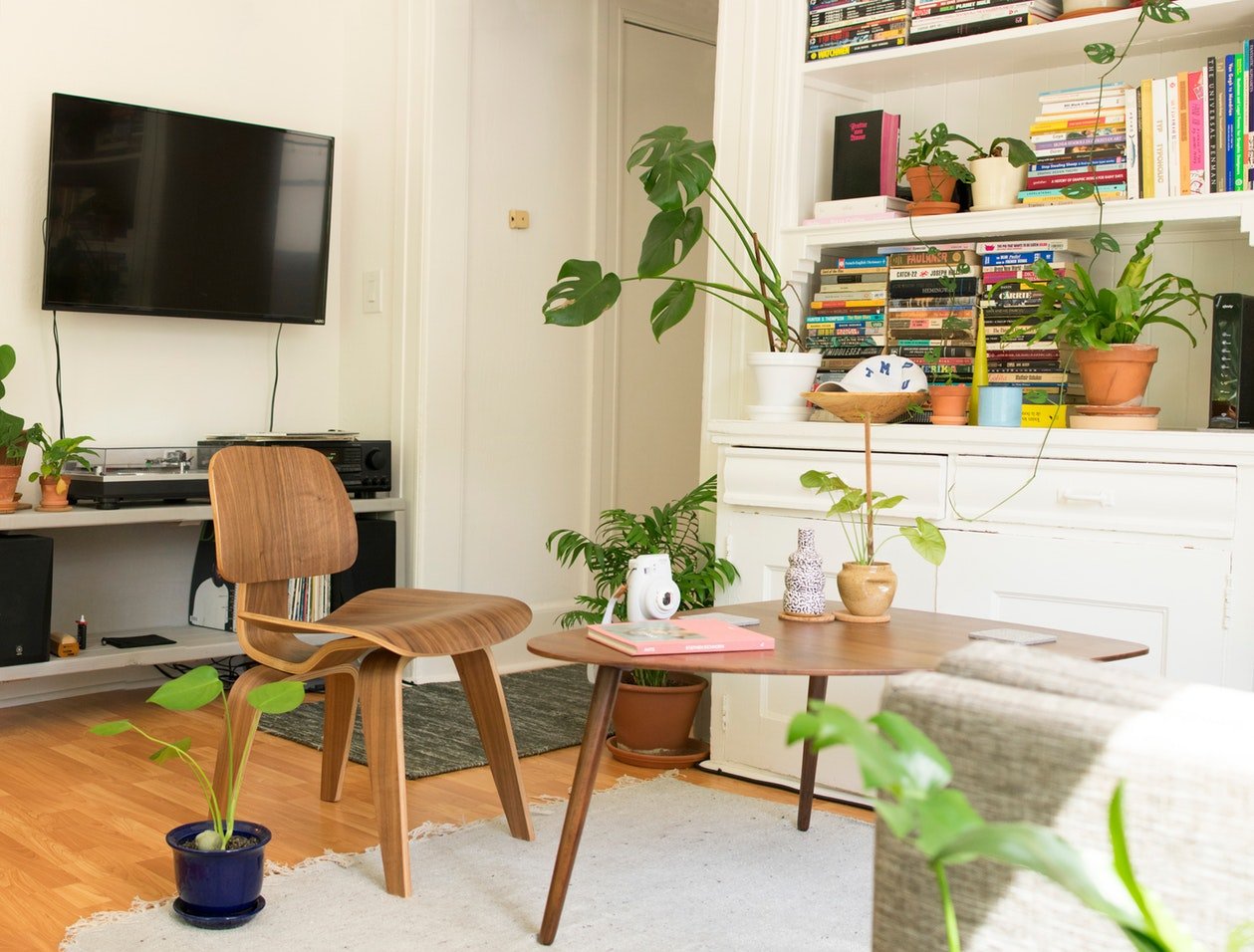 The process of moving into your first apartment can be quite an overwhelming endeavor, but there are plenty of ways to conquer the process responsibly and efficiently. Breaking the project up into multiple small tasks will save you a lot of stress and keep you organized and excited. After all, this process is your first real venture into adulthood.
The process of moving into your first apartment can be quite an overwhelming endeavor, but there are plenty of ways to conquer the process responsibly and efficiently. Breaking the project up into multiple small tasks will save you a lot of stress and keep you organized and excited. After all, this process is your first real venture into adulthood.
Before and during your apartment search you need to think about costs and know what you can and cannot afford. You also need to know how to budget your money and evaluate what you need vs. what you want in a rental property. After the initial responsibilities are understood and implemented, the fun part takes root! Read on to learn about all the dos and don’ts as well as the excitement of living on your own!
Consider Upfront and Long-Term Costs
Even if it’s your first time renting you obviously know paying rent is going to be a big responsibility for you. What a lot of first time renters tend to overlook, however is the upfront costs that will be due upon or prior to move-in day. All property owners will require that you pay a security deposit that can be as much as a full month’s rent. You will also have to pay rental application fees and pet fees if you have any furry friends who will be sharing your new space with you.
After the upfront fees and deposits have been accounted for it is important to keep in mind the long-term costs of having your own rental space. For one, remember that rent and any added utility costs like electricity and cable/internet are recurring monthly fees that will last for the length of the lease agreement. I know this may sound like an obvious statement but it is rather easy to disregard the fact when all the excitement of a new place starts to set in.
The fees associated with your new apartment are likely not the only financial responsibilities you will be taking on. Along with moving into your first place comes other responsibilities as well. You may also have to consider a cell phone bill, car payment and/or car insurance and any loans you may have outstanding. Many people would highly suggest you add renter’s insurance to that list in order to protect your property from any uncontrollable damages.
 Budget Wisely
Budget Wisely
The only way you will truly know if this a good and affordable option for you is if you take the time to evaluate your money so you know exactly what you can afford and set a reasonable budget ahead of time to make the process run as smoothly as possible. If you are able to understand how to budget your time and money prior to moving in you are more likely to be financially and mentally prepared for the new life ahead of you.
One thing is certain… In order to be approved for any rental property you must have pre-established credit. Different companies will have different rules on how they evaluate your credit. If you have not yet established credit or you need to work on improving your credit you will more than likely have the option to add a co-signer to your lease.
Use credit cards in moderation to establish good credit and continuously raise your credit score. This will help you to easily get approved on any future rental applications, and having a good credit score will save you money on big purchases like a car or a house down the road. You can quickly and safely check your credit score online at creditkarma.com or on the Credit Karma app! Credit Karma allows you to run credit reports for free without bringing down your score. Credit Karma will also provide you with tips and insights on how to keep raising your credit score over time!
Keep in mind that most utility bills are dependent on usage. With that being said, you can easily save on utility costs by turning off or unplugging appliances and electronics when they are not in use. If you are able to focus on keeping your electricity and cable/internet uses to a minimum you will more than likely save a good amount of money on your monthly utility bills. Discover other ways to save on bills and living costs with these tips and tricks from The Simple Dollar.
Evaluate Property Needs Vs. Wants
Once you know what you can afford, have a solid budget planed and have began establishing credit you should then begin evaluating your needs vs. your wants and research locations, properties and neighborhoods. Usually living in a safe location with low crime rates is a must. But sometimes that can mean sacrificing the location that you really want. What amenities do you consider needs vs. wants? And where do aspects of commuting and transportation fall on your personal need vs. want scale? All of these are important to consider and look at in reference to your budget.
You may have to compromise on your prime location in order to fit the needs of your budget. It is important to be sure you are not compromising your safety to fit the needs of your budget. City-Dat.com is a credible website for searching crime rates in different cities and specific locations throughout the US. On this site you can search addresses and neighborhoods to do your own safety investigation. Overall the location you choose is completely up to you and what you are comfortable with. However, you will have to do careful research and property hunting to find the right location/budget match.
If you are currently living near the location/s you are interested in moving to, it is a great idea to drive by the properties on your own time both during the day and at night. You should drive by both during the week and on a weekend so you can get a good feel for the different types of neighborhood vibes at various times. If you are not located within driving distance of the location definitely make use of Google maps and virtual tours (if they are available to you) before setting up a showing time.
Keep in mind your commute! If you’re not hip on a long commute or multiple bus and train transfers on the daily you may want to reassess your prime location to be as close as possible to where you work. In other words, if you do not own a vehicle you may need to be within close walking distance to public transit. You can use different apps to track your commute via various modes of transportation. Simply enter your starting and ending locations and let the app do the rest!
Apartment Checklist for Finding Your New Place | Apartment Guide
Read the Lease Carefully Before You Sign
One of the most important aspects of moving into a new rental property is making sure that you carefully read the entire lease before signing it. It is critical that you do not rush this process. Take as much time as you need to read over your lease and ask your leasing agent or property manager any questions that may arise or strike your curiosity. You must carefully go over every topic so that you fully understand your agreement and so you can be sure that any preconceived verbal agreements you may have had with your agent or landlord are noted in the lease.
It is also important that you have someone that you trust read through your lease as well so you can have a second opinion. If you have one or a few more people read over the lease with you they may catch something that you didn’t. These are all essential details because you wouldn’t want to sign a 12 month legally binding contract if you are not in absolutely 100% agreement/understanding with the other party. Because breaking this lease, even if it is an accident would lead to legal trouble down the line.
10 Things You Should Do Before Signing a Lease | Rent.com
 Move in and Style Your Space! (AKA The Fun Part)
Move in and Style Your Space! (AKA The Fun Part)
Once your responsibilities are understood and squared away and the lease has been signed, the fun part begins! And if you have read this far you must be in it to win it. This means you deserve to have fun and enjoy the process!
Know Your Space
Go to the apartment before move in day to really get to know the space and do some last minute cleaning. Take a look around for any damages that may need to be repaired. Make sure all the lighting, faucets, appliances, etc are in good working order. Collect measurements of the space so you are aware of where to place large furniture items and the easiest way to move them into the building. If the space isn’t ideal for easy move in, you can look into different types of moving services if you think you will need an extra hand. Knowing your space will help you create a fool proof plan of action for move in day.
Begin Developing Your Styling Aesthetic
Remember to only move the necessities. It’s good to purge as much as you can before the move and start with a clean slate, because you will acquire things over time. With that being said make sure you develop your aesthetic and acquire styling items as you go. Don’t buy everything all at once. It can be tempting to want to fill your apartment with style and decorations right away, but your style may change over the years. Filling your apartment within the first couple weeks will deplete your bank account and leave you with a lot of things that you will quickly find out you don’t want. Take it slow and collect as you go.
To begin, know your needs vs. wants. Identify the things that you will need right away vs. the things that can wait a few months or so. The most common essentials that you will need right away include a mattress, sofa, bed frame, cooking essentials, glasses, plates, silverware, and maybe even window treatments and extra lighting. Everything else can wait as long as you need. Items like side tables, a headboard, rugs, art, serving dishes, a dining table and chairs and storage containers are all things that can be acquired as you go. It’s important to know the difference between the essentials and the non essentials so you don’t overspend right off the bat.
When you do start decorating your space, avoid basing your décor off of a color scheme. You will find down the road that your space has little variety and may even look too elementary and out of style. Start by gathering photos of rooms that you are attracted to and find what it is that they have in common. Then start casually searching for items that fit into that aesthetic. If something jumps out at you great! If not, don’t panic. There is no rush to the styling process!
The 10 Commandments of Decorating Your Rental | Apartment Therapy

Liven Up the Space
If you’re looking to liven up the space, remember that plants bring life to any room no matter how big, small, bright or dark the room may be. Art is obviously another lively option. And art can be anything! Even some of your necessities can be art pieces! If you are not willing to go out and shop for or buy expensive art right off the bat consider ‘raiding the garage’ so to speak. Rummage through the basement, attic or garage of family and relatives for antique pieces that you can bring back to live in your new home! And if you must purchase, buy second hand! Shop the local thrift stores and flea markets for dishes, vintage sofas, and other various art pieces. This is a great way to check out the local area around your new place and you never know what kind of treasures you may find.
10 Renter-Friendly Ways to Bring Your Home Decor Style to Life | Verily
Invest in Pieces You Love
When shopping for large furniture items, think long term not short term. Don’t buy any oversized furniture Items! If you are moving in to your first place of your own, it is very likely that you will be traveling from place to place for the next few years. Buy items that will be easy to transport. Most importantly you should always invest in pieces that you know you will love forever and use often.
Choose multipurpose pieces for functionality and space saving. More often than not your first apartment will be a rather small space for living. So you will want to have some items that serve more than one purpose.
Don’t buy everything at a discount! Know what to splurge on and what to buy for a lower price. The number one item that you should splurge on is a mattress, because if you’re not sleeping well you’re not living well. And living well is the ultimate goal right? For any large furniture items you should always order ahead of time. You should shop for and order big items or heavy price tag items typically within 10 weeks prior to the move in date. This will keep you from adding on too many last minute tasks and it will help you be prepared and on budget when move in comes around.
Celebrate Your Adulthood and Plan the Housewarming Party
Congratulations, you are finally an adult doing adult things! Being all settled in to your new place is exciting and a huge relief. However the journey isn’t over. You will soon realize the added expenses of the things you didn’t think about, like grocery shopping for example. But don’t let the details get you down. Be confident in your ability to be start being responsible with your money and budget. It will be tough but it will be worth it. You will realize how many steps ahead you are now then you would have been if you hadn’t made the decision to take control of your responsibilities and make this move on your own. Most importantly enjoy the ride! This is one of the most exciting moments in life. Don’t get too consumed in the struggles and the details to enjoy the glorious process. Change and growth, after all is something to be happy about!
Things to Think About Before Renting Your First Apartment | Apartment Guide
Tips for First Time Renters | Apartments.com
The First Apartment Checklist: Things to Buy Now, Things to Buy Later | Apartment Therapy
Our Best Advice for First Time Decorators | Apartment Therapy
41 Tips to Help You Crush Your First Apartment Move | Dolly[/vc_column_text][/vc_column][/vc_row]
